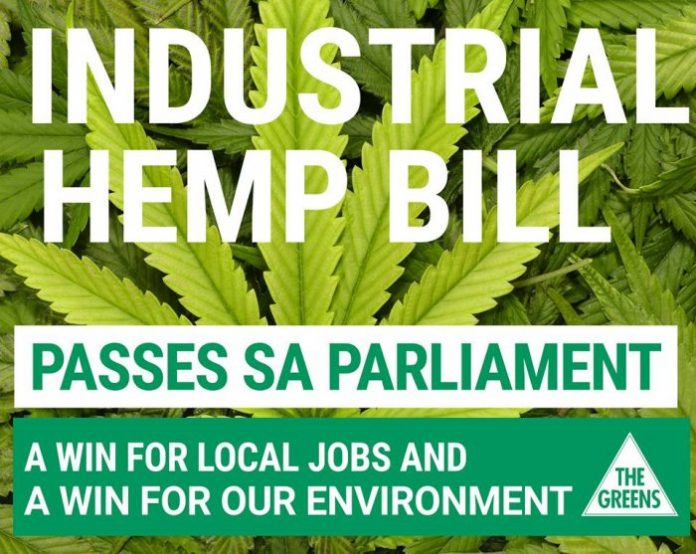A Bill to enable the cultivation of industrial hemp in South Australia passed State Parliament on Thursday with the support of the Government and Opposition.
South Australia now no longer has the unpleasant distinction of being the only state in Australia where growing industrial hemp remained illegal. It’s hoped the start of legal cultivation will be able to commence soon, pending development of regulations.
“We will set up the regulatory framework and it will be up to farmers and manufacturers to decide if it’s economic and it’s something that they want to do,” said SA Manufacturing and Innovation Minister Kyam Maher
The ABC reports farmers are expected to be able to plant crops “within weeks” – but that may be a little optimistic as the wheels of bureaucracy tend to turn slowly.
The Bill was first introduced in November 2016. In February, the South Australian Government announced it would support the Bill, then the proposed legislation passed the State Parliament’s Upper House late in March.
“I am very proud to have introduced this Bill and to be supporting the growth of one of the oldest crops in history which will have a hugely positive impact on the future,” said Greens MLC Tammy Franks; champion of Industrial Hemp Bill 2016.
“The production of biofuels, blankets, ink, cardboard, biochemical, carpet, towels, insulation and Hempcrete (fire retardant bricks), industrial hemp is set to be building blocks for a sustainable future.”
News of the Bill’s passing was unsurprisingly well received by the sector and supporters.
“On behalf of IHASA – Industrial Hemp Association of South Australia and one and all involved, thank you Tammy Franks MLC for your dedication and commitment to getting this Bill through… a wonderful outcome for our State, its environment, our farmers, producers and innovators,” said IHASA’s Teresa McDowell.
Ms. Franks sees a bright future for the crop in Australia; offering farmers additional diversification options and the potential to make better use of marginal lands.
“Industrial hemp will offer job opportunities, growth for our state and pave the way for a greener, cleaner future,” she said.


